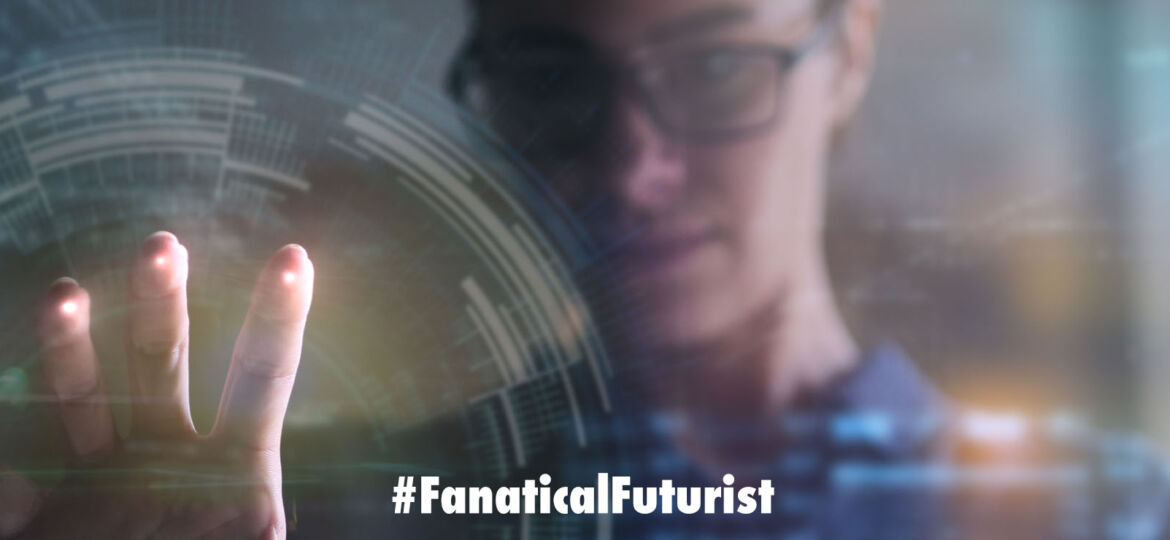
WHY THIS MATTERS IN BRIEF
It’s time to break free of computer screens, viva la revolution, viva AR!
 Love the Exponential Future? Join our XPotential Community, future proof yourself with courses from XPotential University, connect, watch a keynote, or browse my blog.
Love the Exponential Future? Join our XPotential Community, future proof yourself with courses from XPotential University, connect, watch a keynote, or browse my blog.
For almost 50 years the concept of computers has largely remained the same. After all, we’re still staring at an operating system on a 2D screen that’s controlled using a mouse and keyboard – or our fingers and voice. However, thanks to advances in Augmented Reality (AR), which includes everything from AR glasses and AR smart contact lenses, right through to Virtual Reality (VR) glasses, thankfully those days may soon come to an end. Although that said I wouldn’t recommend holding your breath.
Nevertheless, just the mere thought of being able to re-invent how we use computers and develop the OS of the future has got many entrepreneurs on the edge of their seats, and now the team at Facebook Labs have released a concept video of how they think Apple’s MacOS could look in AR, and I have to say it looks impressive.
While the general concept of computers has remained the same for the past 50 years there’s no doubting that the requirements and challenges of workplaces during that time has been steadily increasing. Those requirements make it more and more challenging for employees to make the best of use of their time and stay productive while facing increasing pressure from employers.
On top of that in COVID-19 forced many companies to operate entirely remotely, and executives everywhere announced that come the new year they planned on letting more of their workforce work remotely from home on a semi or permanent basis, after all, get it right, and the benefits, such as reduced commuting time and reduced stress, for starters, are clear for everyone to see.
Check it out for yourself
However, despite these and other benefits, employers and employees alike are already struggling to keep up with the challenges that come with home working – many of which lead back to the computer itself.
Whereas the demands of workplaces and productivity change rapidly, the tech industry fails to keep up with those demands. Some of the problems include a fragmented team communication, friction when trying to multitask and not having access to hardware such as multiple screens or generally the logistical challenges that come with the distribution of the latter.
Called RealityOS the new concept is a productivity-focused operating system that leverages, you guessed it, Apple’s upcoming AR glasses, and as concepts go, and against the backdrop of us all working from home more it seems like a great idea. What do you think?
















